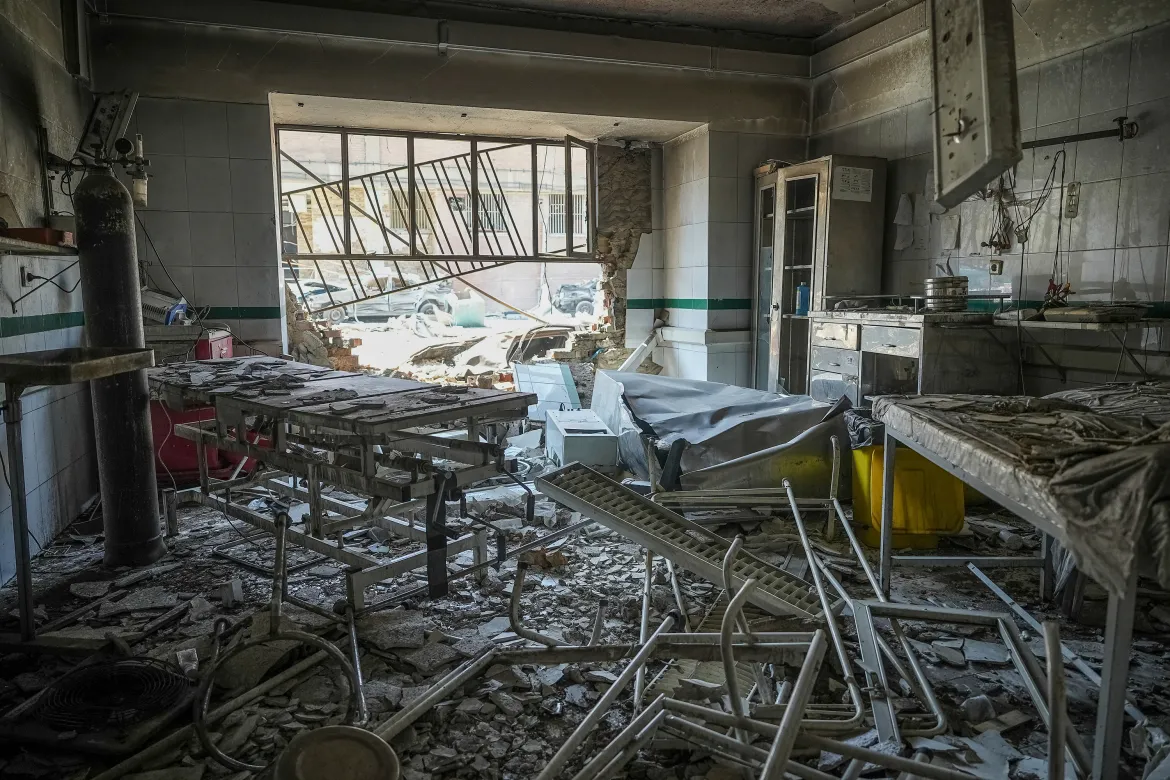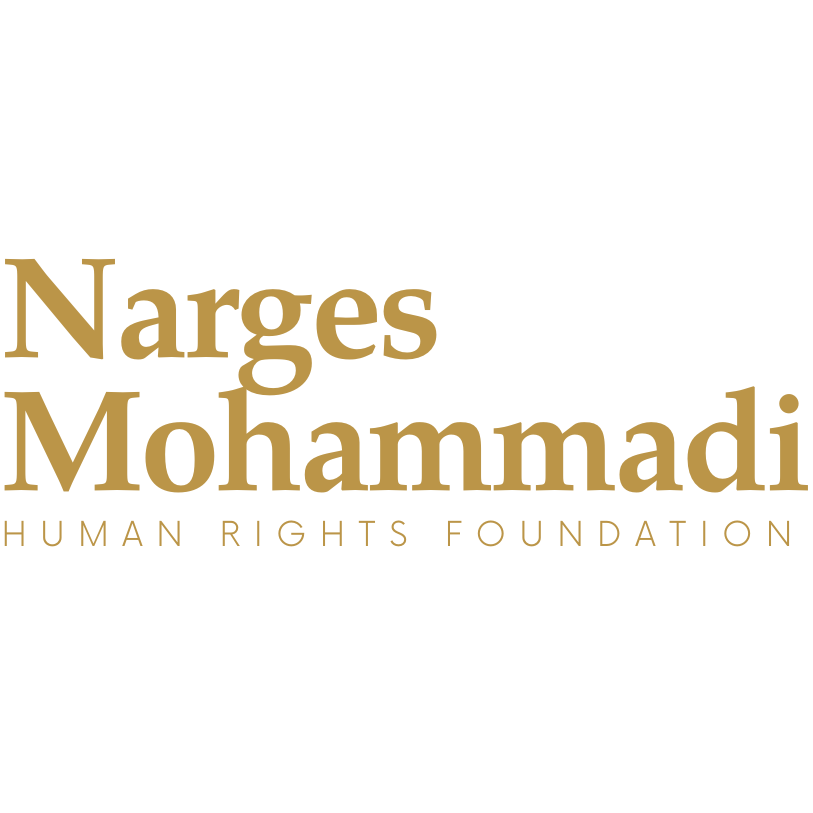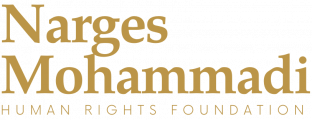
Narges Mohammadi, Iranian Nobel Laureate Says War Dealt Big Blow to Fight for Democracy
Narges Mohammadi says Iran’s leaders will turn on their people to stay in power
July 2, 2025
After Israel’s 12-day war dealt a severe blow to the leadership of Iran, one of the country’s leading human-rights defenders warns that authorities will turn on their own people to consolidate power.
“The situation for Iranian people is more dangerous now than before the war,” Narges Mohammadi, who in 2023 received the Nobel Peace Prize for her three-decade fight for democracy, told The Wall Street Journal. The interview was conducted in writing because of the poor internet connection in the village outside Tehran where she sheltered from the bombings.
“I am deeply concerned about the situation of civil society activists, political activists, and especially youths who are active in social activities,” Mohammadi said. “Unfortunately, I think the repression will intensify further in the coming days.”
Scores of Iranians have been arrested on allegations of espionage for Israel and complicity in the attacks since last week’s cease-fire. many were executed after hasty trials. Allegations of espionage have been leveraged in the past at opposition activists.
Few Iranians have been as vocal in their fight against Iran’s theocratic rule as Mohammadi, 53 years old, who has endured torture and prison sentences. She is on temporary release from a 10-year sentence after a tumor removal and bone-graft surgery in prison, where she also suffered several heart attacks.
Despite decades of oppression, Iran’s civil society remains vibrant and active openly and underground. Protest movements spring up every few years, most recently after the death in police custody of a young woman in 2022, and have been crushed by authorities.
war on its foreign enemies, it is still fully capable of using force against its own citizens.
Despite her long fight against the Islamic Republic, Mohammadi said she didn’t want foreign powers to topple it and that any change in Iran should be pushed by Iranians. Regime change pushed by a foreign power would be illegitimate, she said.
“In Iran, there is a misogynistic and religious government helmed by Ali Khamenei who has taken us to hell while promising paradise,” Mohammadi said, referring to the country’s supreme leader. “Netanyahu is taking us to hell while promising freedom and democracy.”
Gauging the mood in Iran is difficult because of the lack of reliable polling and restrictions on freedom of speech, but Mohammadi is one of the most celebrated public figures among a population wary of foreign interventions. Many other Iranians voiced similar sentiments during the war.
In a country without an organized opposition, Mohammadi is an icon of civil disobedience. She has organized prison sit-ins in solidarity with street protests and published a book about torture in prisons. When she received the Nobel Peace Prize, the chair of the committee called her “the symbol of what it means to be a freedom fighter in Iran.”
She has been arrested 13 times, tried nine times and sentenced to more than 36 years in prison, of which she has served roughly 10. She hasn’t seen her twin teenagers in person since 2015, when they moved to France to live in exile with her husband after she was arrested.
Five days after Israel began its strikes on Iran, Mohammadi fled the capital, driving through traffic-clogged streets to a village. The war in Tehran brought back memories of the 1980-88 Iran-Iraq war.
“The sound of drones and air defenses reminded me of my childhood, when I was in a shelter with my family, listening to the sound of Iraqi planes breaking the sound barrier above us,” she said.
Iranian authorities imposed a near-total communication blackout, making it hard for Iranians to gauge the toll of the war and whether to evacuate. The blackouts also prevented them from receiving nongovernmental information or from organizing, Mohammadi said.
Israel killed a number of senior military commanders and nuclear scientists, and struck Iran’s missile facilities and nuclear infrastructure. An Israeli strike hit Evin Prison, a notorious detention facility housing most of the country’s political prisoners, where Mohammadi has spent about a decade.
Mohammadi said that after the strike, some inmates were moved, and many relatives don’t know if their jailed family members have been killed or taken to undisclosed locations.
Israel’s campaign was the most significant blow to the Islamic Republic in four decades, but Mohammadi said that attacks on the state, which destroy infrastructure and the economy and weaken its people, will undermine any drive for democratic change.
“War does not have the capacity for the fundamental transformation that the Iranian people seek,” she said.
در مصاحبه کتبی با وال استریت ژورنال : جنگ برای جمهوری اسلامی، ابزار سرکوب مردم برای حفظ قدرت
برنده ایرانی جایزه نوبل: «جنگ، ضربه به مسیر مبارزه برای دموکراسی است. چرا که رهبران جمهوری اسلامی برای حفظ قدرت خود به مردم خودشان حمله خواهند کرد.»
پس از آنکه جنگ ۱۲ روزه اسرائیل ضربه شدیدی به رهبری ایران وارد کرد، یکی از برجستهترین مدافعان حقوق بشر کشور هشدار داد که مقامات برای تحکیم قدرت خود، جنگ را علیه مردمشان خواهند آورد.
نرگس محمدی، که در سال ۲۰۲۳ بهدلیل سه دهه مبارزهاش برای دموکراسی جایزه صلح نوبل را دریافت کرد، به والاستریت ژورنال گفت: «اوضاع برای مردم ایران حالا خطرناکتر از قبل از جنگ است.» این مصاحبه بهصورت مکتوب انجام شد چون اینترنت در محل اطراف تهران که او برای در امان ماندن از بمبارانها در آن پناه گرفته بود، وضعیت بسیار نامناسبی داشت.
محمدی گفت: «من بهشدت نگران وضعیت فعالان جامعه مدنی، فعالان سیاسی و بهویژه جوانانی هستم که در فعالیتهای اجتماعی مشارکت دارند. متأسفانه فکر میکنم سرکوب در روزهای آینده تشدید خواهد شد.»
از زمان آتشبس هفته گذشته، دهها ایرانی به اتهام جاسوسی برای اسرائیل و همکاری در حملات دستگیر شدهاند. شش نفر پس از محاکمههای عجولانه اعدام شدند. اتهام جاسوسی پیشتر نیز علیه فعالان مخالف مطرح شده بود.
در مبارزه با حکومت دینی ایران، معدود ایرانیانی بهاندازه محمدی، ۵۳ ساله، صدای بلند و روشنی داشتهاند؛ کسی که شکنجه و محکومیتهای زندان را تحمل کرده است.
با وجود دههها سرکوب، جامعه مدنی ایران همچنان زنده و فعال است، چه آشکار و چه زیرزمینی. جنبشهای اعتراضی هر چند سال یکبار شکل میگیرند — آخرین بار پس از مرگ یک زن جوان در بازداشت پلیس در سال ۲۰۲۲ — و بهشدت توسط مقامات سرکوب میشوند.
بسیاری از ایرانیان با نافرمانی مدنی غیررسمی در زندگی روزمره، رهبران اسلامگرای ایران و قوانین سختگیرانه رفتار و پوشش را به چالش میکشند.
به گفته تحلیلگران سیاسی، ضعف کنونی ارتش ایران، بعید است که در حال حاضر باعث شورش آشکار شود. در حالی که درگیری با اسرائیل توانایی ایران برای جنگ با دشمنان خارجیاش را کاهش داده، هنوز کاملاً قادر است از زور علیه مردم خودش استفاده کند.
محمدی با وجود مبارزه طولانیاش علیه جمهوری اسلامی، گفت:« تغییر اساسی باید توسط خود مردم ایران رقم بخورد. او گفت تغییر رژیم بهوسیله قدرت خارجی نمیتواند مشروع به شمار آید.»
اسرائیل اعلام کرده هدفش از جنگ با ایران تغییر رژیم نبوده است. اما بنیامین نتانیاهو، نخستوزیر اسرائیل، از ایرانیان خواسته «با ایستادن برای آزادی خود از شر این رژیم شیطانی و سرکوبگر متحد شوید.»
محمدی با اشاره به رهبر جمهوری اسلامی گفت: «در ایران حکومتی استبدادی و مذهبی و زنستیز به رهبری علی خامنهای بر ما حاکم است که در حالیکه بهشت را وعده میدهد، ما را به جهنم کشانده است. نتانیاهو هم در حالیکه آزادی و دموکراسی را وعده میدهد، ما را به جنگ میبرد.»
در کشوری بدون اپوزیسیون سازمانیافته، محمدی نماد نافرمانی مدنی است. او در زندان اعتصابها و تحصن هایی به نشانه همبستگی با اعتراضات خیابانی و کتابی درباره شکنجه در زندانها منتشر کرده است. رئیس کمیته نوبل هنگام اعطای جایزه صلح او را «نماد معنای واقعی مبارز آزادی در ایران» خواند.
محمدی تاکنون ۱۳ بار دستگیر، ۹ بار محاکمه و به بیش از ۳۶ سال زندان محکوم شده که حدود ۱۰ سال آن را گذرانده است. او از سال ۲۰۱۵ تاکنون فرزندان دوقلوی نوجوانش را حضوری ندیده؛ فرزندانی که پس از بازداشت او به همراه همسرش به فرانسه تبعید شدند.
پنج روز پس از آغاز حملات اسرائیل به ایران، محمدی پایتخت را ترک کرد و از خیابانهای پرترافیک تهران به اطراف پناه برد. جنگ در تهران خاطرات جنگ ایران و عراق در سالهای ۱۹۸۰ تا ۱۹۸۸ را برای او زنده کرد.
او گفت: «صدای پهپادها و پدافند هوایی مرا به یاد کودکیام انداخت، وقتی با خانوادهام در پناهگاه بودم و به صدای شکستن دیوار صوتی هواپیماهای عراقی بالای سرمان گوش میدادم.»
مقامات ایرانی تقریباً ارتباطات را بهطور کامل قطع کردند و این باعث شد ایرانیان نتوانند خسارتهای جنگ را ارزیابی کنند و تصمیم بگیرند آیا باید تخلیه شوند یا خیر. محمدی گفت:« این قطع ارتباط همچنین مانع از دسترسی مردم به اطلاعات مستقل و بروز و سازماندهی هر اعتراضی شد.»
اسرائیل تعدادی از فرماندهان ارشد نظامی و دانشمندان هستهای ایران را کشت و به تاسیسات موشکی و زیرساختهای هستهای ایران حمله کرد. یکی از حملات اسرائیل زندان اوین را هدف قرار داد؛ زندان بدنامی که بیشتر زندانیان سیاسی کشور در آن نگهداری میشوند و محمدی حدود یک دهه از عمر خود را در آن گذرانده است.
محمدی گفت که پس از این حمله، زندانیان منتقل شده اند و بسیاری از خانوادهها نمیدانند که آیا عزیزانشان کشته شدهاند یا به مکانهای نامعلومی برده شدهاند.
حمله اسرائیل بزرگترین ضربه به جمهوری اسلامی در چهار دهه اخیر بود. محمدی گفت :«جنگ — که زیرساختها و اقتصاد را نابود کرده و مردم را تضعیف کند — تلاش برای تغییر دموکراتیک را تضعیف خواهد کرد.»
او گفت: « بر اساس تجارب تاریخی در خاورمیانه ، جنگ ظرفیت ایجاد تحول بنیادی که مردم ایران در پی آن هستند را ندارد.»


